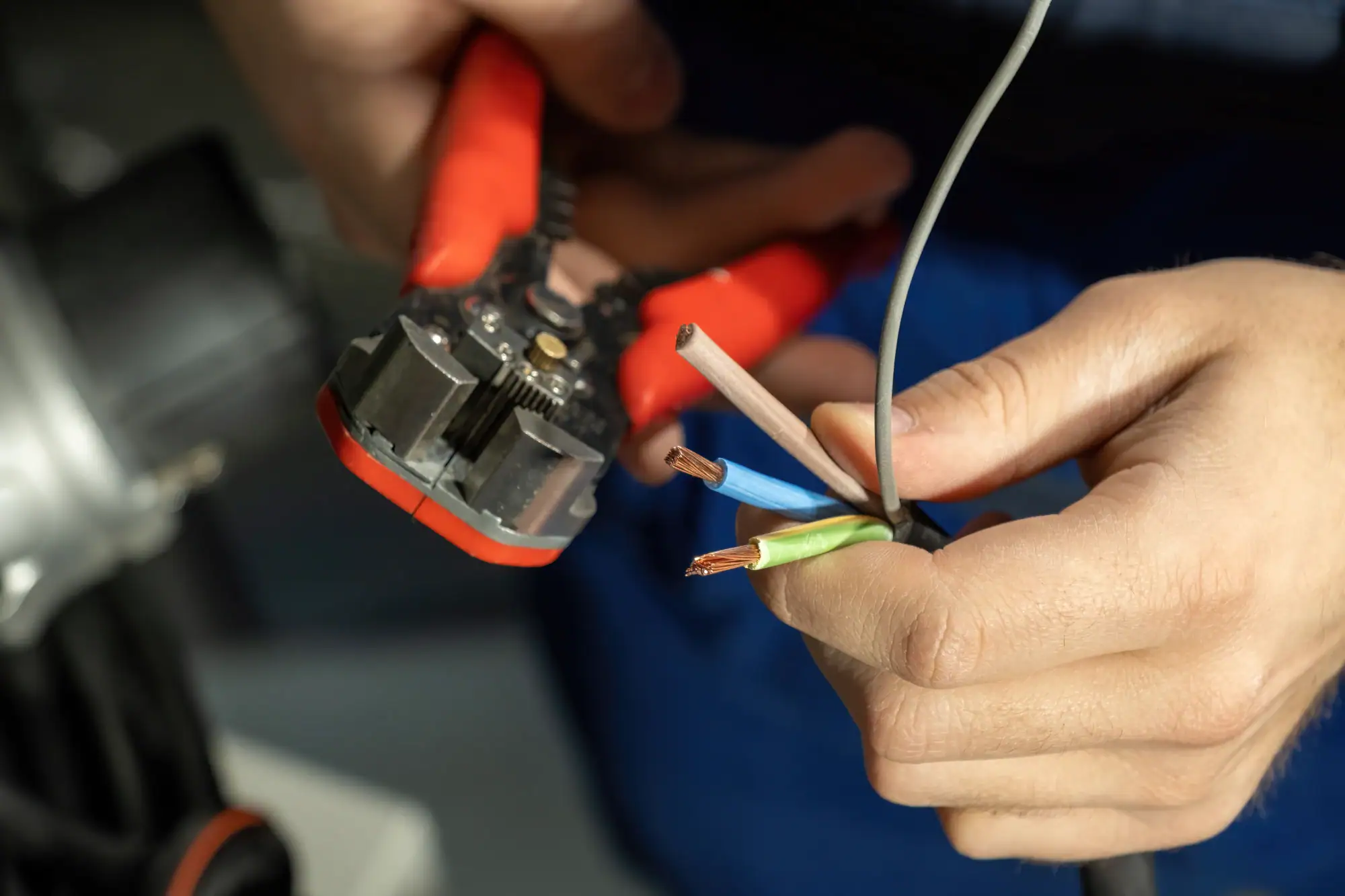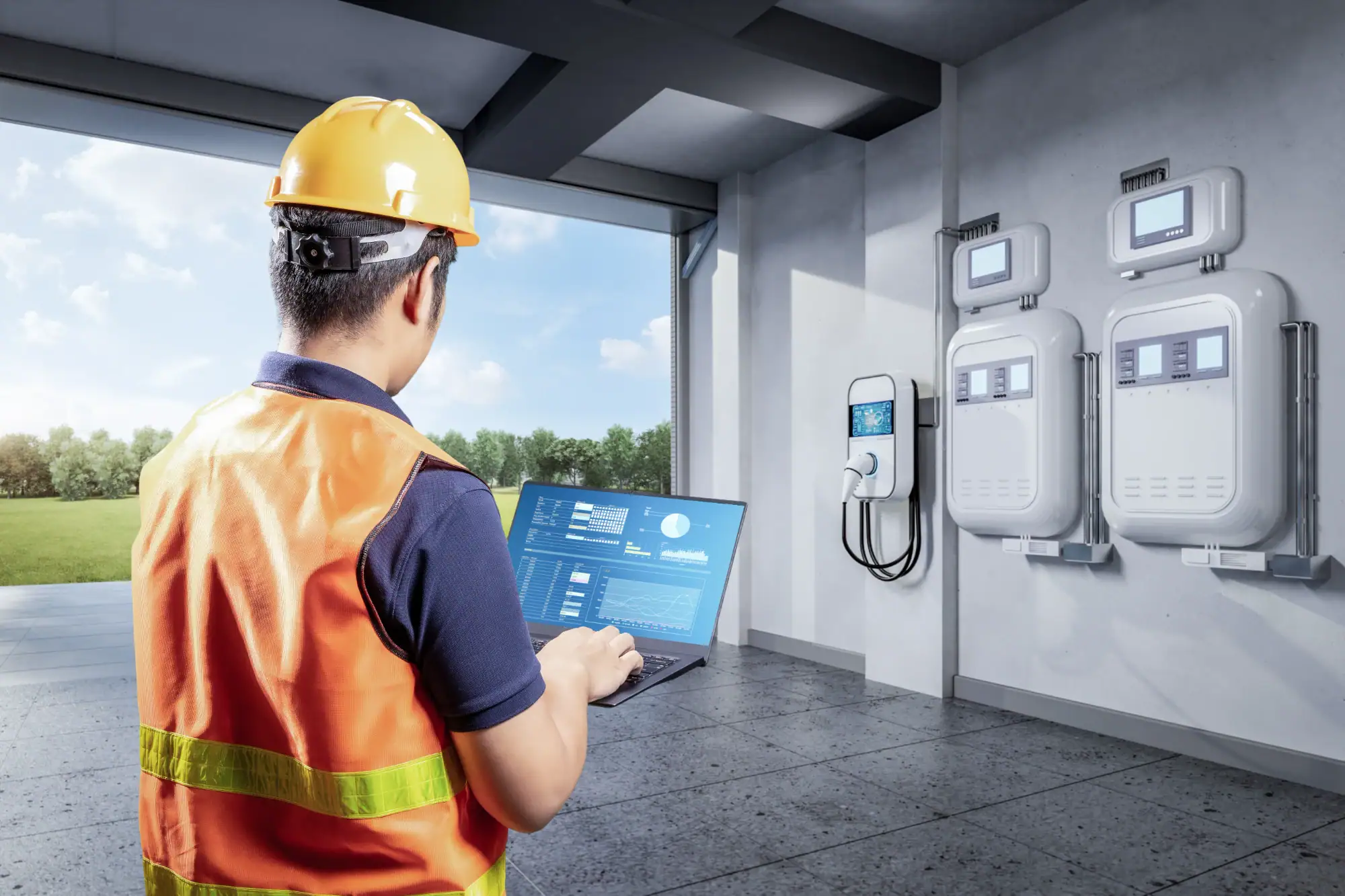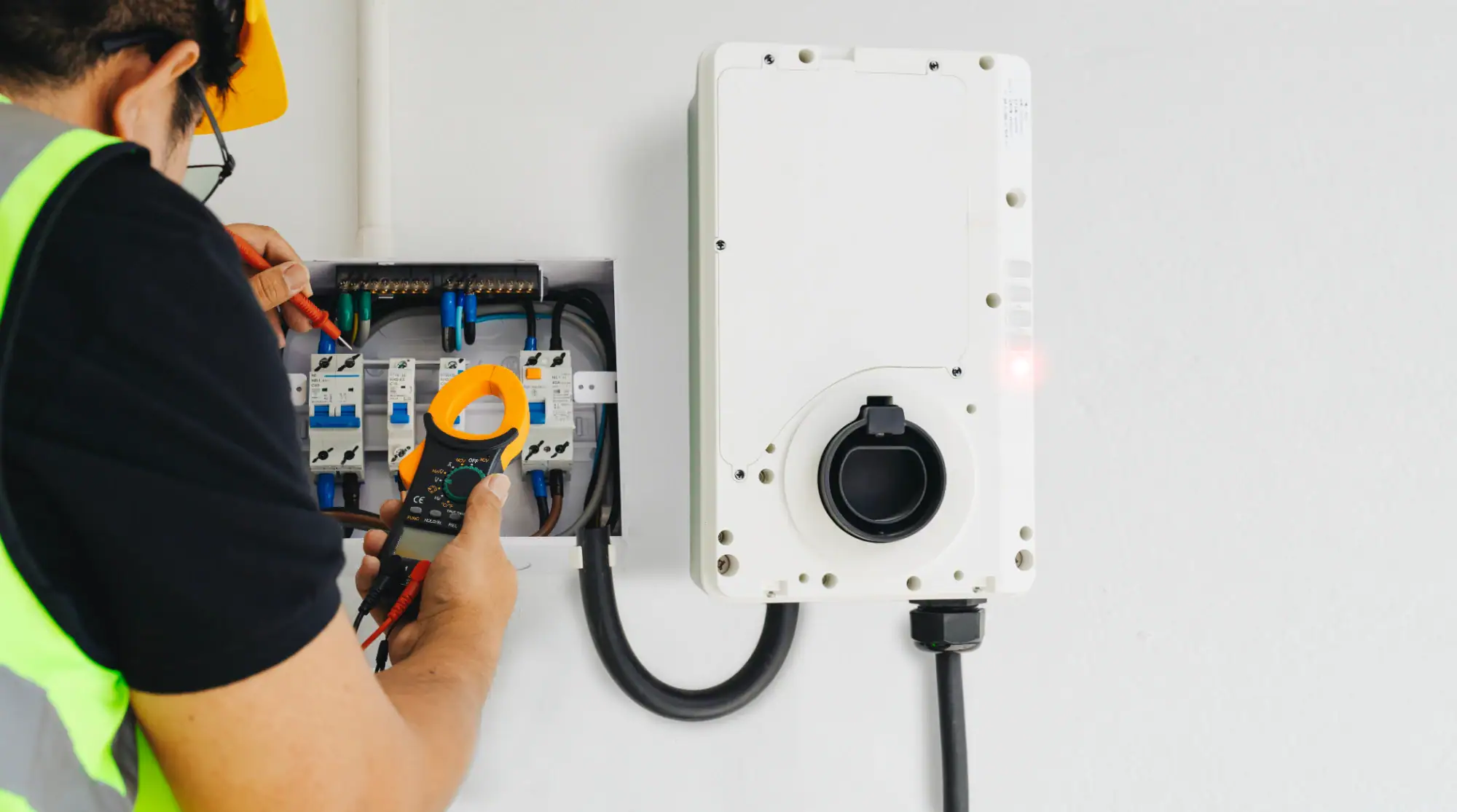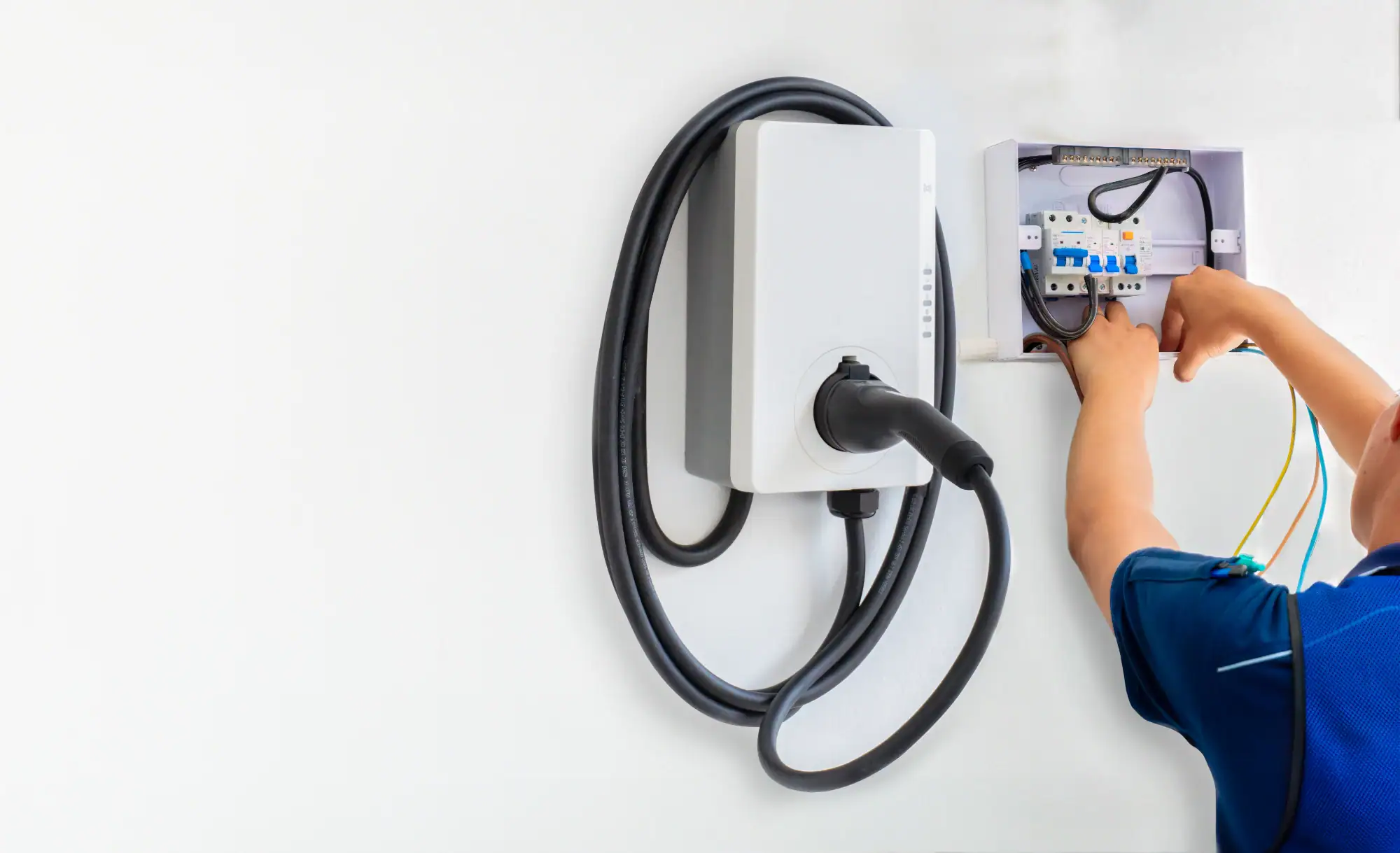Skip the public charging lines and power up overnight with professional EV charger installation that actually works when you need it.

Hear from Our Customers

Your electric vehicle deserves better than a 20-hour charging marathon. With a properly installed Level 2 charger, you’ll add 25-40 miles of range per hour instead of crawling along at 3-4 miles per hour with a standard outlet.
Wake up every morning to a fully charged vehicle instead of playing the guessing game about whether you have enough juice for your commute. No more detours to public charging stations or sitting in your car for hours waiting for enough charge to get home.
The difference isn’t just convenience—it’s peace of mind. When your charging setup actually matches your daily driving needs, you stop thinking about range anxiety and start enjoying the benefits of electric driving.
Jimco Electric has spent 25 years fixing the electrical issues that keep DuPage County homeowners up at night. From flickering lights and panel upgrades to power outages and burning smells, we’ve seen what happens when electrical work gets done wrong.
That experience matters when you’re adding a 40-amp circuit to your home. EV charger installation isn’t just about mounting a box on your garage wall—it’s about making sure your electrical system can handle the load safely for years to come.
We’re licensed, bonded, and insured with Illinois Commerce Commission certification for EV charger installation. More importantly, we understand that most of our clients are homeowners who need straight answers about what their electrical system can and can’t handle.

The process starts with an honest assessment of your current electrical panel and your charging needs. Many DuPage County homes have 100-amp panels that are already running close to capacity with modern appliances, HVAC systems, and electronics.
If your panel needs upgrading to safely handle a Level 2 charger, you’ll know upfront. Panel upgrades typically run $500-$2,000 depending on your home’s specific requirements, but they’re often necessary for safe operation and future electrical needs.
Once your electrical system is ready, the actual charger installation involves running a dedicated 240-volt circuit from your panel to your garage or parking area. The entire process includes pulling proper permits, professional installation, and final inspection to ensure everything meets Illinois electrical codes.

Ready to get started?
Professional EV charger installation covers the electrical work that matters most: evaluating your panel capacity, running proper wiring, installing the appropriate breaker, and ensuring everything meets local codes. You’ll get a dedicated 240-volt circuit designed specifically for your charging needs.
In DuPage County, most installations require electrical permits and inspections—steps that protect you from safety issues and ensure your homeowner’s insurance stays valid. ComEd customers can qualify for rebates up to $3,750 for Level 2 charger installation, making professional installation more affordable than many homeowners expect.
The installation also includes load calculations to make sure your electrical system won’t be overloaded when you’re charging your vehicle while running other household appliances. This planning prevents nuisance breaker trips and ensures reliable charging every time you plug in.
